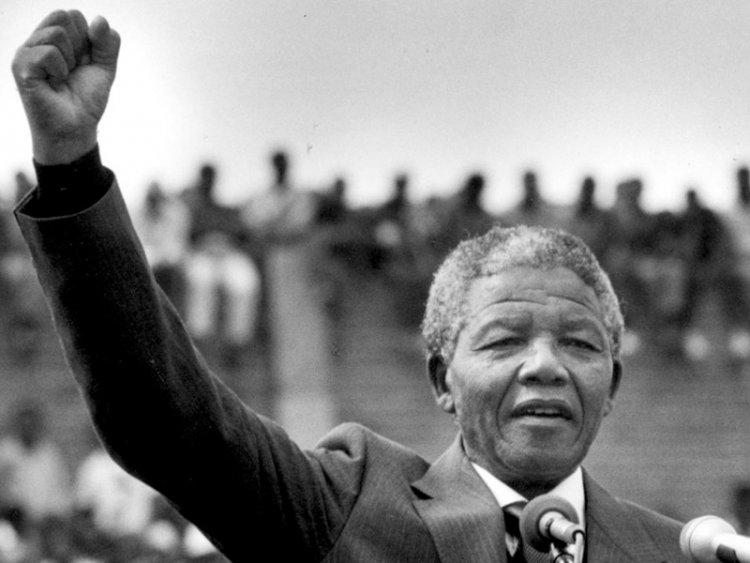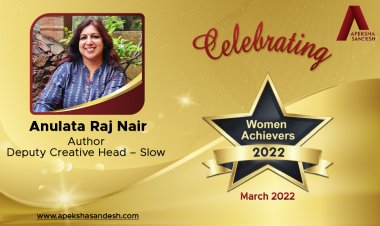International Nelson Mandela Day: Remembering the first Black president of South Africa

On 18 July every year, the world marks Nelson Mandela International Day to make a difference in our communities. Everyone has the ability and the responsibility to change the world for the better! Mandela Day is an occasion for all to take action and inspire change.
Background
Nelson Mandela was born in Transkei, South Africa, on July 18, 1918. He is one of the most well-known anti-apartheid activists in South Africa. He was jailed in 1963 for leading the liberation movement against apartheid and for his stance on the human right to live in freedom.
Mandela’s prisoner number was 466 and the year was 1963 when he was imprisoned on Robben Island, off Cape Town in South Africa. The Robben Island prisoners were never referred to by their names, but rather by their numbers and year of imprisonment- hence 46664 was Nelson Mandela’s number. His release from prison in 1990 fed political debates in the country and contributed to South Africa’s transition towards a multi-racial democracy.
After his release, Nelson Mandela continued addressing racial issues in his country and supported reconciliation initiatives. His efforts resulted in him becoming elected as South Africa’s president in 1994. He remained in office as president until 1999. He also won the Nobel Peace Prize, together with another former South African president Frederik Willem de Klerk, in 1993. In 2007 Mandela formed the Elders, an independent group of global leaders who offer their influence and experience to support peace building, help address major human suffering causes and promote shared interests of humanity.
The first Mandela Day was launched in New York on July 18, 2009, but the UN’s resolution to declare the day occurred later that year. On November 10, 2009, the United Nations General Assembly adopted a resolution declaring July 18 as “Nelson Mandela International Day”. The day marks Nelson Mandela’s contribution to peace through his active involvement in resolving conflicts, promoting human rights, international democracy and reconciliation, and in addressing racial issues.
November 2009 - in recognition of the former South African President’s contribution to the culture of peace and freedom, UN General Assembly declares 18 July "Nelson Mandela International Day". Resolution A/RES/64/13 recognizes Mandela’s values and his dedication to the service of humanity.
How People Celebrate
Nelson Mandela Day not only celebrates Nelson Mandela’s life, but it is also a global call to action for people to recognize their ability to have a positive effect on others around them. The day hopes to inspire people to embrace the values that Mandela shared. These values include democracy, freedom, equality, diversity, reconciliation, and respect.
Many people and organizations around the world take part in many activities to promote Nelson Mandela Day. These activities include volunteering, sport, art, education, music and culture. Various events are also held on or around July 18 to honor Nelson Mandela’s works and to promote the different projects that were inspired by Mandela’s achievements.
Mandela Day also celebrates a campaign known as “46664”, in reference to Nelson Mandela’s Robben Island prison number. The campaign was originally launched to raise awareness of HIV/AIDS. However, its focus expanded to broader humanitarian work. The efforts from Mandela Day support the campaign’s ongoing work and other Nelson Mandela charitable organizations.
His views on social issues has been exemplary, and a path to a brighter, equal world.
On Reconciliation
We in South Africa are convinced that it is both possible and practicable to reach our goal of a better life for all in the shortest possible time. We derive our confidence from the knowledge that this is a vision shared by the overwhelming majority of South Africans across the colour and political divides.
And we fully appreciate the role of the international community in making this happen — not only in the form of material support. If we are able today to speak proudly of a rainbow nation, united in its diversity of culture, religion, race, language and ethnicity, it is in part because the world set us a moral example which we dared to follow.
This achievement is bound to last because it is founded on the realisation that reconciliation and nation-building mean, among other things, that we should set out to know the truth about the terrible past and ensure it does not recur. Ours must therefore not be merely a respite before the bitterness of the past once more reasserts itself.
We recognise too, that reconciliation and nation-building would remain pious words if they were not premised on a concerted effort to remove the real roots of past conflict and injustice. Our national security and the survival of our young democracy depend, above everything else, on the programme to meet the basic needs of the people. Reconstruction and development will ensure that all South Africans have a stake in life; that they share an interest in the well-being of the country as a whole.
On Racial Discrimination
It will forever remain an indelible blight on human history that the apartheid crime ever occurred. Future generations will surely ask: What error was made that this system established itself in the wake of the adoption of a universal declaration of human rights? It will forever remain an accusation and a challenge to all men and women of conscience that it took as long as it has before all of us stood up to say ‘enough is enough.’...
Let us travel it together. Let us, by our joint actions, vindicate the purposes for which this Organization was established and create a situation wherein its Charter and the Universal Declaration of Human Rights will become part of the body of law on which will be based the political and social order of a new South Africa. Our common victory is assured.
On Human Rights
Quite appropriately, this 53rd General Assembly [of the United Nations] will be remembered through the ages as the moment at which we marked and celebrated the 50th anniversary of the adoption of the Universal Declaration of Human Rights.
Born in the aftermath of the defeat of the Nazi and fascist crime against humanity, this Declaration held high the hope that all our societies would, in future, be built on the foundations of the glorious vision spelt out in each of its clauses.
For those who had to fight for their emancipation, such as ourselves who, with your help, had to free ourselves from the criminal apartheid system, the Universal Declaration of Human Rights served as the vindication of the justice of our cause. At the same time, it constituted a challenge to us that our freedom, once achieved, should be dedicated to the implementation of the perspectives contained in the Declaration.
On Fighting Poverty
The apartheid system eventually fell because of the unity of those who were denied their rights, and because all sectors of society recognised that they had more to gain from working together than from fighting each other. It is that same quality that has helped us, so quickly, to lay the foundations for a better life.
When apartheid ended we faced the difficult task of reconstructing our shattered society and providing the most basic of services for our people. We had to build schools and hospitals, to provide housing and jobs, to boost our economy, to protect our people’s rights through our Constitution and our courts, to help South Africa deal with the division of its past and start the healing process, to deal with abuse and damage which engulfed most of our communities.
Essentially our task was to create the conditions in which every South African has the opportunity to create a better life for themselves. But government cannot meet these challenges by itself. It requires of us all to pull together, into a partnership, in order to bring about the necessary changes.
In order to achieve these goals, we also needed to transform government from a system serving minority interests to one that meets the needs of all South Africans. And all these things had to be done in a country where most people were denied experience of government or proper education and training.
Nelson Mandela’s contribution to the society has been limitless: conflict resolution; race relations; promotion and protection of human rights; reconciliation; gender equality and the rights of children and other vulnerable groups; the fight against poverty; the promotion of social justice. The resolution acknowledges his contribution to the struggle for democracy internationally and the promotion of a culture of peace throughout the world.
He used to say:
It is so easy to break down and destroy. The heroes are those who make peace and build: Something the world desperately needs right now!















































